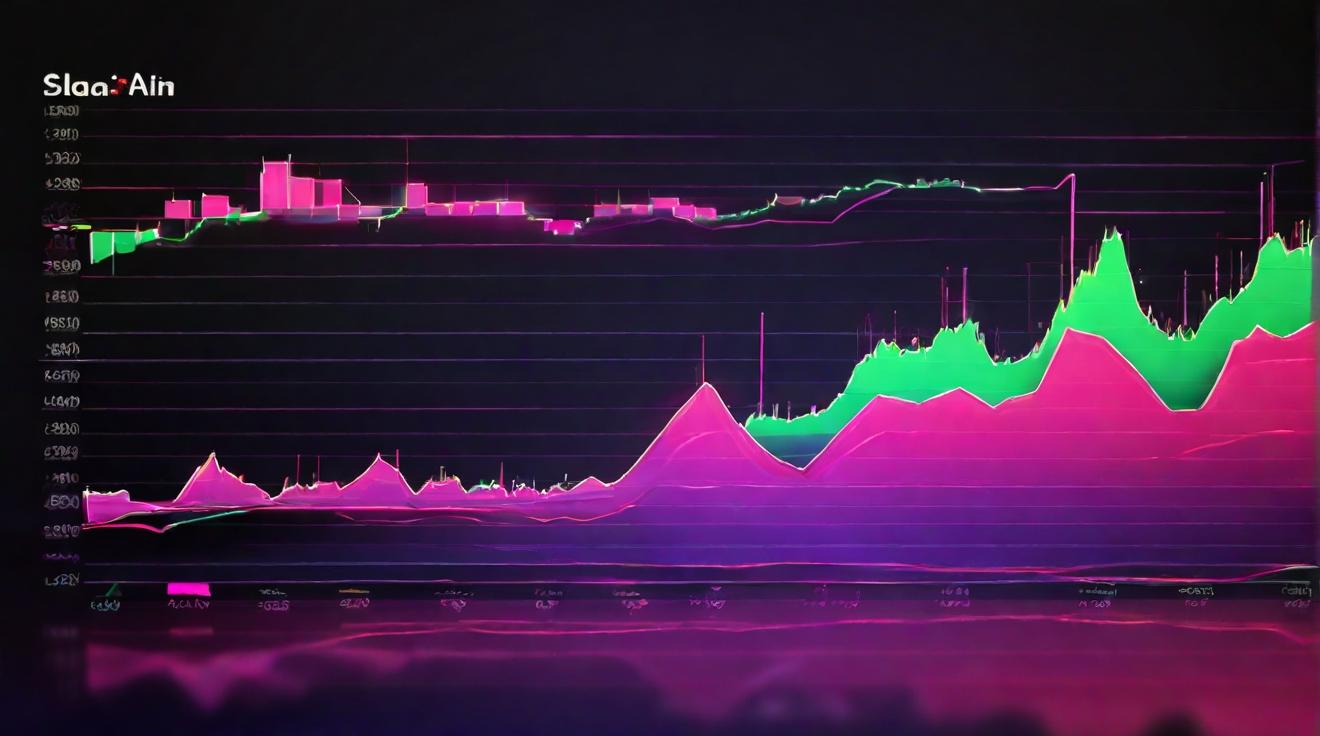Wall Street Faces Third Consecutive Losing Week as Market Struggles to Rebound
Wall Street is on track to close its third consecutive losing week as the stock market continues to struggle. The S&P 500 and other U.S. indexes are down more than 2% for the week. The Dow Jones Industrial Average is slightly up, while the Nasdaq composite is slightly lower. August has been a rough month for the stock market, with a third of the S&P 500’s gains for the year being given back. The rapid rise in yields has caused investors to reassess the valuations of stocks, especially after concerns were raised about the market being overvalued.
August Volatility: Stock Market Gives Back a Third of Year’s Gains
The month of August has seen significant volatility in the stock market, resulting in a giving back of close to a third of the S&P 500’s gains for the year. The swift rise in yields has forced investors to reconsider the expensive valuations of stocks, particularly after critics warned that the market had risen too quickly. The 10-year Treasury yield, which reached its highest level since 2007, has eased slightly from its peak, but stock markets around the world have still taken a hit, with higher yields adding pressure to investors. Bond yields may be paying out more in interest, but they make investors less willing to pay high prices for stocks and other investments, which are perceived as less stable.
Investors Reconsider Stocks as Rising Yields Threaten Market Stability
Rising yields have thrown the stock market into uncertainty, with investors reconsidering their stance on stocks. The swift rise in yields has made investors question whether stock valuations have become too expensive. The trend of “buying the dip” during the first half of the year, where moments of weakness were seen as opportunities to buy stocks at low prices, may be shifting to a trend of “selling the rip” in the second half of the year, according to Bank of America investment strategist Michael Hartnett. Technology and other high-growth stocks, which were major contributors to the S&P 500’s gains, have come under pressure due to higher rates. As a result, several of these stocks are down more than 10% from their earlier highs.
“Sell the Rip” Trend Emerges as Tech Stocks and High-Growth Investments Slide
Technology and other high-growth stocks, known as the “Magnificent Seven,” have been under pressure recently due to the rising yields. These stocks, which were responsible for a significant portion of the S&P 500’s gains earlier this year, are seen as some of the biggest losers when rates rise. Microsoft, one of the “Magnificent Seven,” slipped 0.1% on Friday, while other stocks like Meta Platforms and Tesla also experienced declines. Higher yields make the stock market look more expensive, unless companies start earning significantly higher profits. Despite better-than-expected earnings reported by companies for the spring, it hasn’t been enough to prevent the market’s slide.
Global Stock Markets Sink as Higher Yields Add Pressure on Investors
Stock markets around the world took a sharp dive as higher yields increased pressure on investors. The rise in yields globally has made investors less willing to pay high prices for stocks and other investments, leading to a sell-off. Hong Kong’s Hang Seng index is already down 10.6% in August alone, while stocks in other countries, including Europe and Asia, also slid. China’s economic recovery has been a cause for concern, with property developers facing intense scrutiny. Evergrande Group, a major real-estate developer in China, is seeking approval for a restructuring plan in order to avoid defaulting on $340 billion in debt. This situation has further added to the worries in the global stock market.
The stock market continues to face challenges as higher yields and concerns about the overvaluation of stocks create uncertainty for investors. The trend of “buying the dip” may be shifting to “selling the rip” as technology and high-growth stocks experience declines. Despite better-than-expected earnings, the market is still sliding. Global stock markets have also taken a hit, with China’s economic struggles adding to the pressure. As investors look ahead to Federal Reserve Chair Jerome Powell’s upcoming speech, the stock market remains in a precarious position, with outcomes that vary widely.
Analyst comment
Negative news.
Short analysis: The stock market is facing challenges due to rising yields and concerns of overvalued stocks. The trend of “buying the dip” may be shifting to “selling the rip” as technology and high-growth stocks decline. Global markets are also down, with China’s economic struggles adding to the pressure. Uncertainty remains as investors await Jerome Powell’s speech.













